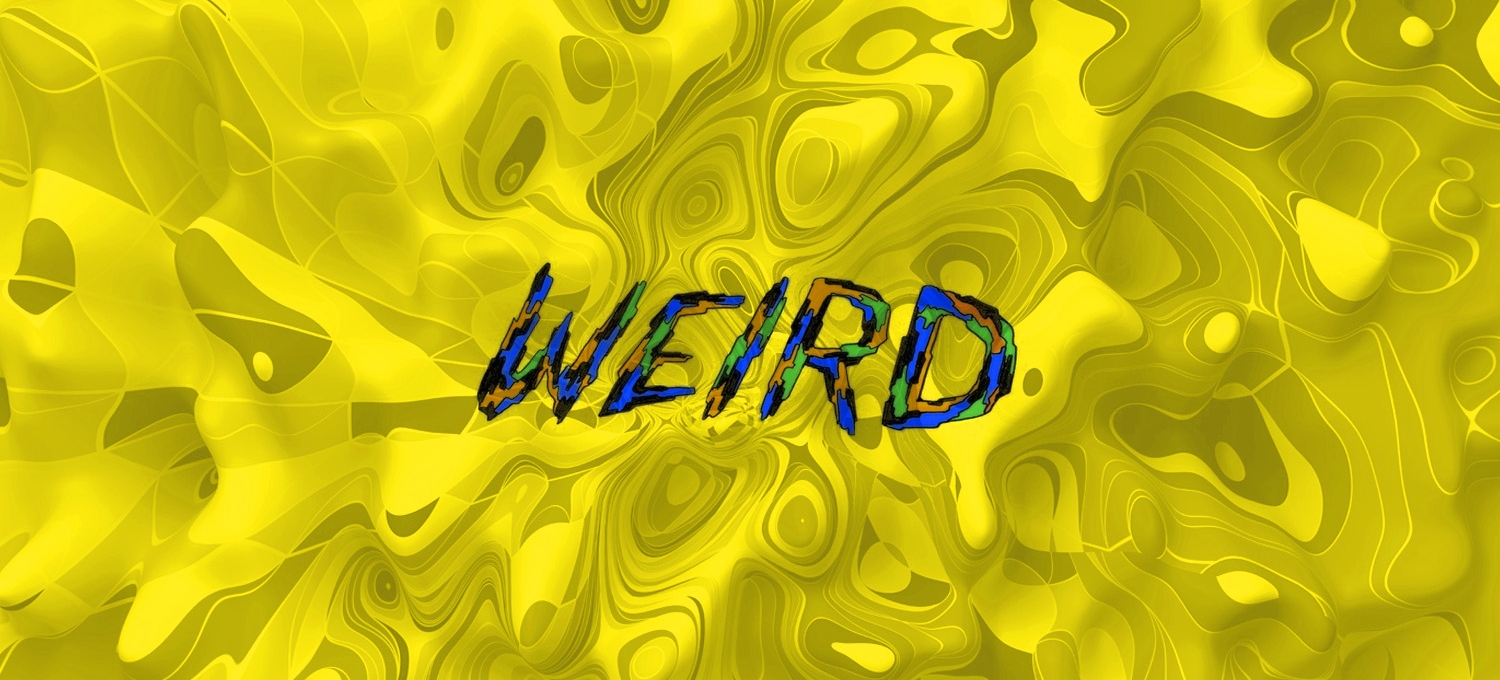I have memories of walking along the beach in Venice and observing all of the eccentricity and self-expression permitted there. I have spent a lot of time people watching in big and small cities, just wondering what everyone’s doing, and seeing how everyone is just so different from the others around them. I watched movies I don’t really love, listen to music I don’t really like, look at art that I don’t understand, eat food I have never heard of, and even talk with people I don’t know well about things I know very little about.
Some would say, “that’s weird, bruh.”
And I’ll admit, it can be uncomfortable at times. It would be much easier to just avoid these situations altogether, to just stick with what I know makes me happy, what’s familiar, and what I already believe to be true. I could just avoid all that weirdness altogether. Perhaps I’ll be better off if I keep myself separate from all of those weird things.
‘Weird’ can be quite a divisive word.
We tend to use the word ‘weird’ most often when we are in an environment or around people that are unlike us. When things are unfamiliar, or difficult to understand, or we feel out of place. It’s when we sense ourselves out of our comfort zone. And who longs to feel unsettled about their environment?
It’s not what we’re told is ‘normal behavior’ in 2018 to be someone who pursues weird situations. We’re told to “find our tribe of people, then just settle in and be grateful that you’re there. You’ll feel accepted and belong in a way you never have before.” After all, with all of the Facebook & Yelp! reviews, Instagram photos, and word of mouth from people we know, there’s no reason to subject ourself to weird things anymore.
Though whenever I find myself in some of these situations, while maybe in the moment, I experience a sense of discord, I realize that I have so much more to understand.
Weird is where we learn,. It’s a signal that we’re foraging into a place where we’re out of our comfort zone, and ‘out of our comfort zone’ is where life is truly lived, not just endured.
Weird is the word that signifies when you’re departing from the norm, or attempting to discover a new perspective. The unfamiliarity that ‘weird’ is rooted in is the place we discover more about our world, about others, and (maybe most importantly) about ourselves.
If you’re like me, you’ve been told that weird is bad. That fitting in is what will assure you’re accepted. That what you make will be liked if you just follow the rules and color within the lines. Don’t go to that restaurant, or that part of town, or do that thing, or talk to that person, because that is deemed weird.
What I have come to realize is the more I put myself in situations that are weird, it’s where I feel most free to be my own weird self. The space between my knowledge and the potential wisdom I could learn from these situations is an ominous chasm of unknown, though the inherent growth is what makes it exciting. And I’m done missing out on weird because of someone else’s opinion, I'll take the chance to form my own, thank you.
If we’re passing judgment on weird on a regular basis, we’re not only missing out on learning, but teaching our brain to avoid scenarios like that in the future. We’re drawing a line in the sand of what we deem normal, and what is not us. Though who are we to judge that?
We’re all entitled to our preferences, though rejecting someone else’s because it’s different than ours is not only closed-minded, it’s stunting our growth. We don’t all have to agree, though we benefit when we move in close to one another, listen, and are eager to learn.
Otherwise, by avoiding it altogether we’re signaling not only to ourselves, but to those with us that we won’t be doing that again. We have villain-ized weird, when in reality anyone who we remember in history decided to move toward weird, or be weird themselves.
Anyone who has made a mark on the world, has chosen to stand out. To be weird and to embrace the weird in others. They have chosen a life of moving toward the things they don’t understand because the possibility of discovery outweighs their own comfort.
So I’m done with the word weird. Weird creates division in places I want to make connections. It gives me permission to avoid something I should probably learn more about. So no more labeling things weird for me. Weird will now be “something I yearn to learn more about.”
In a time where so much divides us unnecessarily, I long to toward the challenges that stretch my thinking, my perspective, my love for others, my compassion, and my empathy. Creating distance from the unknown does very little for my growth.
It won’t be easy, though this is one of those cases where the right thing and the hard thing are the same.
Bye weird, hello discovery.




